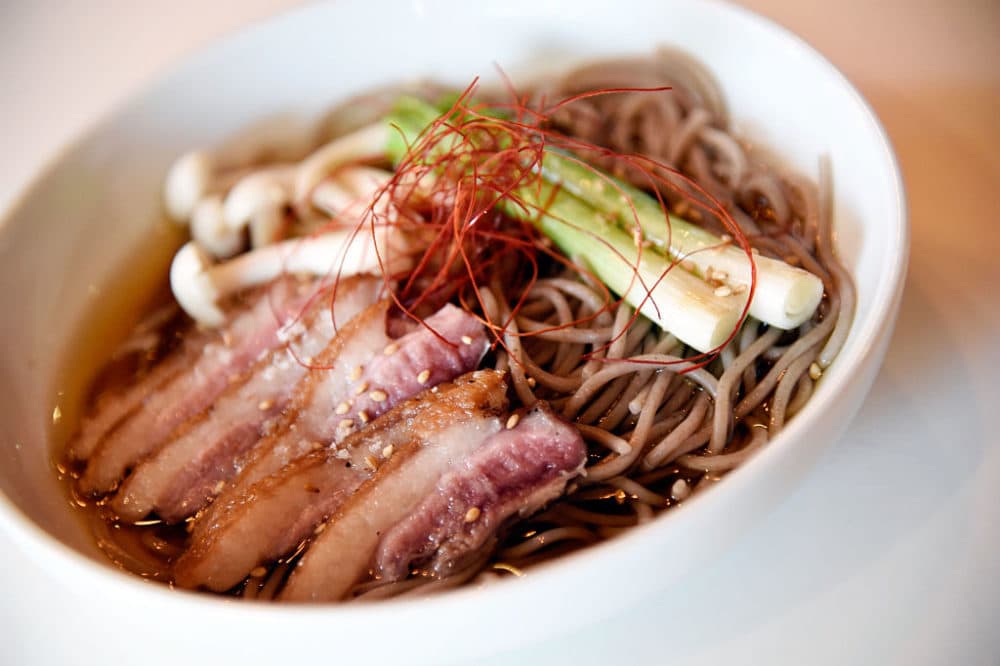Advertisement
Why We Need To Stop Calling Food 'Exotic'
Resume
The word “exotic” is often used to describe animals, places, women and most commonly — food.
Washington Post food writer G. Daniela Galarza recently published an article titled “Stop Calling Food ‘Exotic’ ” asking for people to stop using the word exotic as a descriptor.
The definition of the word changes based on each individual's perspective, she says. People would respond to some of Galarza's recipes saying the spices or ingredients she used were “too exotic." She wasn’t sure what they meant.
“I think that makes it problematic when I’m trying to troubleshoot things for readers, I want to use language that’s as clear as possible,'' Galarza says. “So I had some great exchanges with them just to understand what they meant by that.”
Galarza believes the word exotic centers around a white-dominant, often Anglo American perspective. She says this point of view ties into the history, the origins and the way the word is used today.
Exotic was originally a Greek word used to describe something foreign or alien. “It was likely invented by the Greeks as a way to describe the people that they were conquering,” Galarza says, “that they were subjugating in their years and centuries of conquering.”
Throughout history, she says people started saying exotic more often during British imperialism and colonialism. The use of the word continues to grow today, Galarza says.
“It’s always been used to describe people as a way of othering them and diminishing them,” Galarzar says, “separating them from what we might consider the norm.”
This is problematic, she says, especially in today’s open, global and international society. The word persists because it has been translated to multiple different languages that don’t have a similar adjective.
After speaking with several sociologists, she says she believes the use of the word continues to increase in society because of a “desire to go back to a time in which there was a really easy distinction between one group of people and another and having a hierarchy between them.”
In her article, Galarza points out that there are certain foods that don’t get labeled as exotic. In certain parts of the world, people will say Central or South American food as opposed to calling certain ingredients from Asian countries exotic.
Recently, there has been an awakening in the way people in the food industry use the word exotic. International and ethnic food aisles are disappearing from grocery stores in the United States, for example.
“I think it forces us to think about how we categorize people and the food that they eat,” Galarza says, “and by exoticizing it we’re separating them out from a dominant culture that I don’t think increasingly is going to continue to exist.”
She believes society is moving toward an international, global world where distinctions between people are less important.
She suggests people reframe the way they first approach an ingredient that is unfamiliar to them by researching the item online.
Depending on where you live in the U.S., certain ingredients can be harder to find. In that case, she says it is acceptable to use the word rare.
Galarza admits she has probably used the word exotic in her lifetime.
“Only in the last 10 years did I start thinking about why and what it meant when I used it,” Galarza says, “what it meant to other people and what it meant — sort of the legacy of it.”
Samantha Raphelson produced this interview and edited it for broadcast with Tinku Ray. Camila Beiner adapted it for the web.
This segment aired on July 27, 2021.